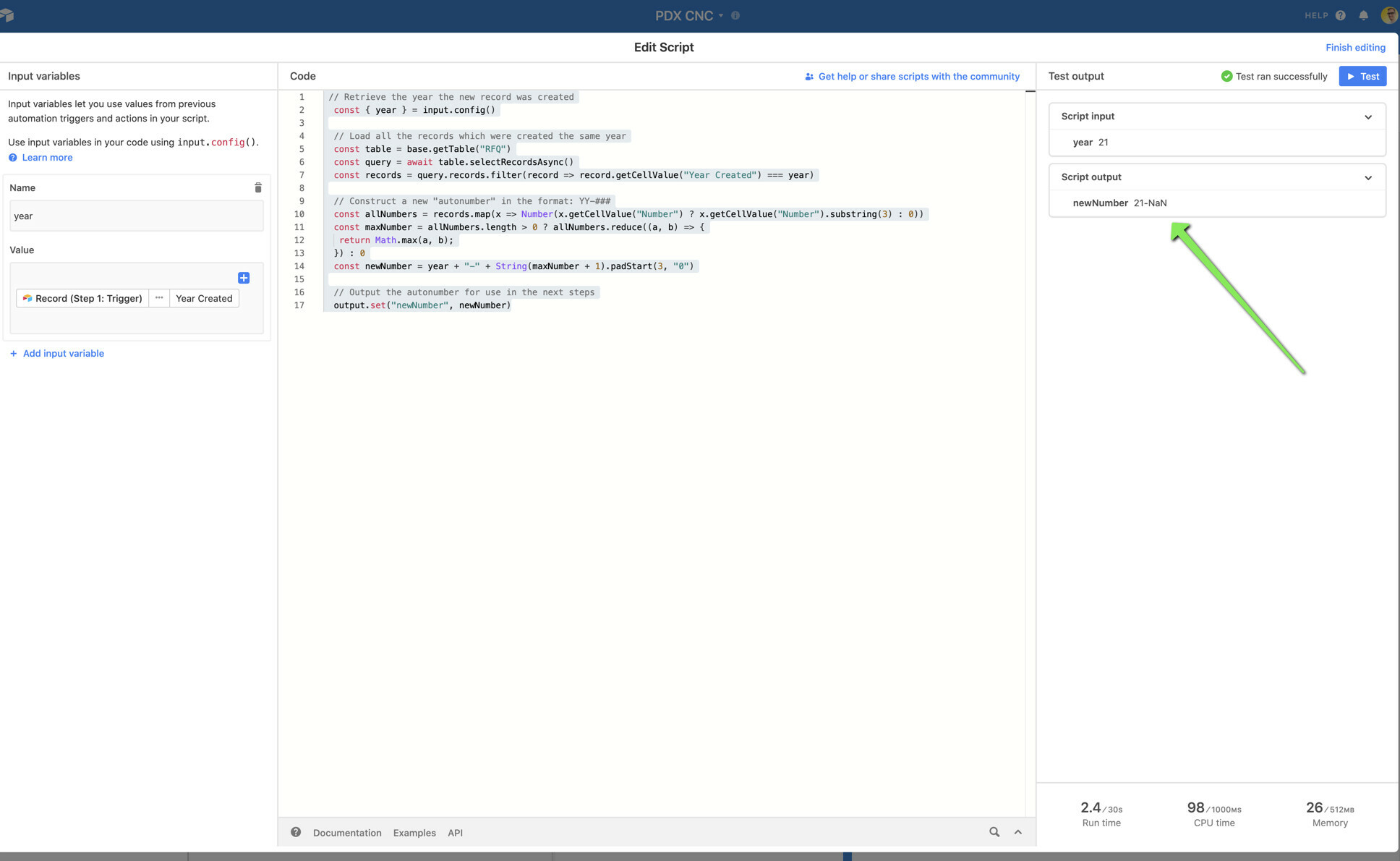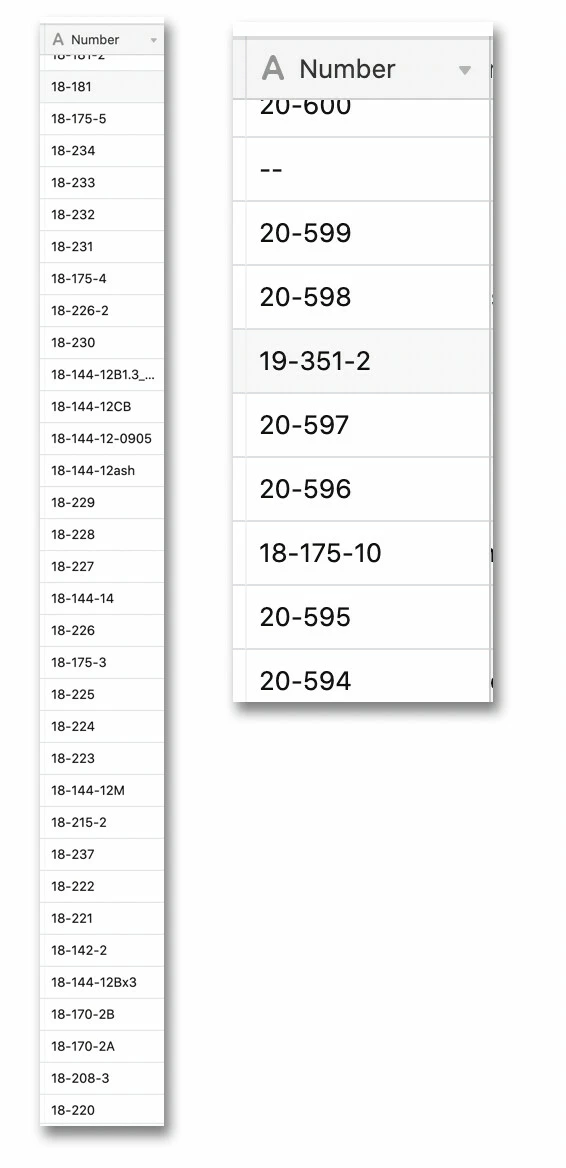Hey all. I’ve searched a handful of times but can’t seem to find another example of what I’m trying to accomplish. I’m looking for some help with an automation or script that can automatically add the correct inquiry number. We do this manually and it’s slowing down our response time and ability to, well automate processes.
Our inquiry numbers syntax:
YY-NNN or an example: 21-846
The next inquiry would be 21-847. This being the two-digit current year as a prefix and then just an integer of the number of inquiries. As others have noted, the “Auto-Number” field is not sufficient.
The field name is Number in Table RFQ where we’d like this new number to go automatically upon new record creation.
Our inquiries mostly come from an airtable embedded form. Sometimes we manually enter them too.





